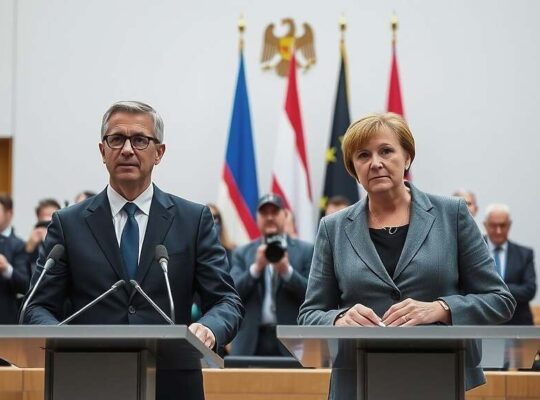Berlin – The Social Democratic Party (SPD) has formally resolved to initiate preparations for a potential ban of the Alternative for Germany (AfD) party, a move signaling a significant escalation in the political debate surrounding the right-wing populist group.
During a party congress held Sunday in Berlin, delegates overwhelmingly approved a motion calling on relevant constitutional bodies to establish the necessary preconditions for a possible application to declare the AfD unconstitutional. The resolution proposes the formation of a joint federal and state working group to assess the viability and prospects of success for such a legal challenge.
Thuringia’s Interior Minister, Georg Maier, presented the motion, asserting that the AfD has begun a process of dismantling Germany’s democratic foundations. He argued the time is right to utilize constitutional mechanisms designed to protect the democratic order. Maier specifically addressed comparisons to the failed attempt to ban the National Democratic Party (NPD), emphasizing that the previous case lacked demonstrable potential for success. The NPD, he stated, was “not effective enough” a distinction he believes does not apply to the AfD.
SPD Party Leader Lars Klingbeil underscored the importance of a unified stance within the party regarding this complex issue. He stated that once the domestic intelligence agencies officially classify the AfD as a definitively right-wing extremist party, there should be no further tactical considerations. Klingbeil argued that those committed to safeguarding the constitution must employ all available legal instruments.
“It is correct that we are now seriously preparing a ban proceeding, that it is being examined and that this option is not being taken off the table, as some within the Christian Democratic Union suggest” Klingbeil stated. While acknowledging that legal action represents only one element of a broader strategy to counter right-wing extremism, he stressed that “the legal confrontation is an integral part of the fight against the right”. The move is expected to further intensify debate about the appropriate limits of political expression and the application of constitutional safeguards in a democratic society.












